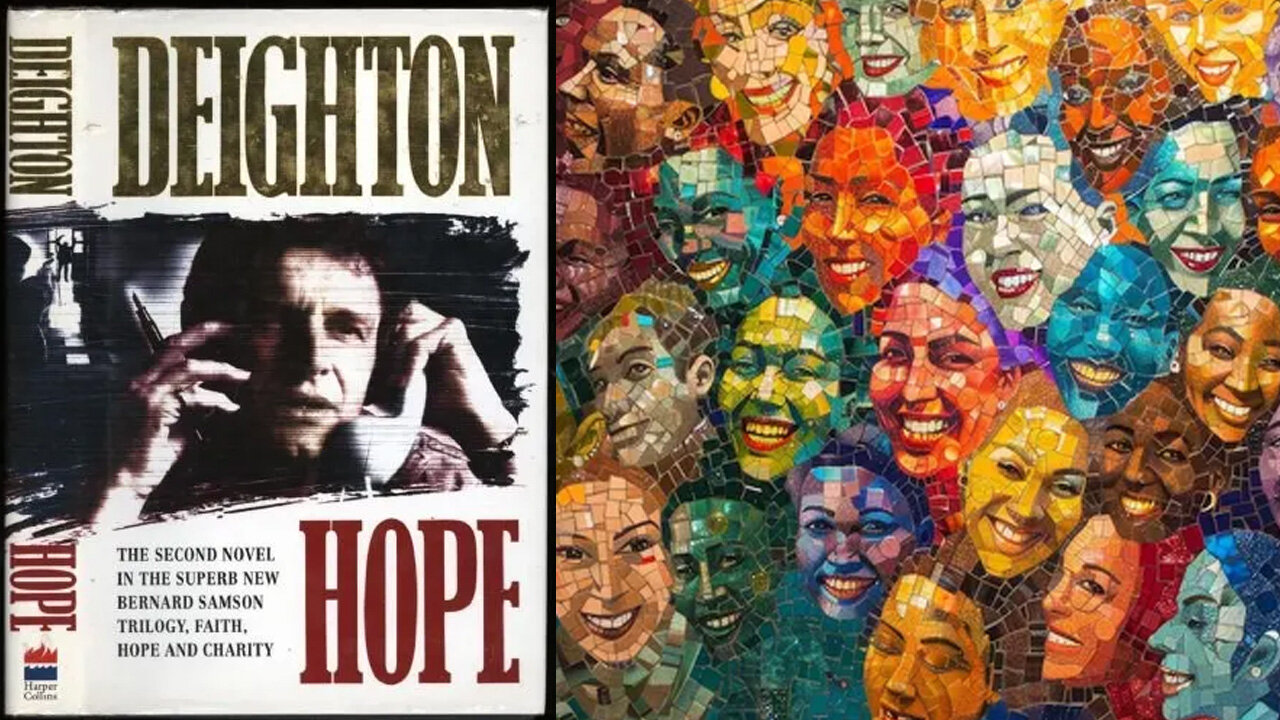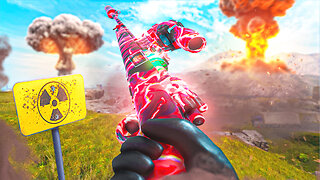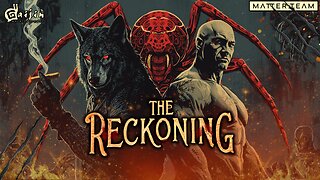Premium Only Content

'Hope' (1995) by Len Deighton
'Hope' is the second novel in Len Deighton’s final Bernard Samson trilogy, following 'Faith' (1994) and preceding 'Charity' (1996). Together, these books serve as the culmination of a monumental ten-novel spy saga that began with Berlin Game in 1983. By the time we reach 'Hope', the tone has grown more introspective, more melancholy. The espionage machinery still grinds on, but it’s no longer the driving force — the spy craft is background noise to the foreground drama of memory, betrayal, family, and loyalty.
Set during the dying days of the Cold War, 'Hope' finds Bernard Samson once again pulled into a mission he doesn’t fully trust, surrounded by colleagues he doesn’t fully believe, in service of an agency he doesn’t fully respect. This time, he’s being sent to Poland — a country teetering between its Soviet past and an uncertain future — to investigate a strange story about an old friend, George Kosinski, who may or may not be dead. It’s a spy story on the surface, but at its core, 'Hope' is about uncovering emotional wreckage and figuring out what to do with it.
Bernard remains one of the most nuanced characters in spy fiction: a desk man who longs for action, a loyalist with a cynic’s heart, a father who can’t quite connect, a lover always on the run from love. He is not a James Bond nor a George Smiley — though closer to the latter in tone — but something more recognizably human. In 'Hope', he struggles not only with the mission, but with the return of his estranged wife Fiona, who previously defected to East Germany and now seems to have reentered MI6’s fold. Their marriage is a wounded animal limping along, and their interactions bristle with old pain, mistrust, and unspoken dependency.
Deighton’s prose here is lean and sharp, but never flashy. He’s a writer of restraint — what is unsaid often matters more than what is spoken. Through Samson’s wry, world-weary voice, we get a portrait of a man who knows exactly how the game works, and how broken it really is. The politics of MI6 are as Byzantine and treacherous as ever — back-stabbing, deception, and vendettas — and Bernard navigates it like a reluctant player in a game where winning brings no reward.
The plot of 'Hope' unfolds slowly and circuitously, which may frustrate readers looking for pace. But speed isn’t the point. The novel is about uncertainty — about trying to reconstruct the past, to understand people who no longer make sense. The mission to Poland becomes a symbolic journey into memory and betrayal, a haunted investigation of what’s been lost to politics, time, and the demands of a profession that consumes everything human.
Deighton is particularly skilled in evoking atmosphere — the greyness of Poland, the bureaucratic sterility of London, the emotional frost of Bernard’s home. There’s an unrelenting sense of quiet menace, of something slightly out of reach, and yet painfully intimate. The spy world isn’t glamorous here; it’s tired, disillusioned, almost absurd in its rituals. But Deighton also manages to find dry humour in that absurdity, usually through Bernard’s sardonic commentary.
As a middle book, 'Hope' does what few second volumes in trilogies manage: it deepens rather than stretches. It doesn’t merely bridge 'Faith' and 'Charity', but enriches both with its careful emotional development. There is no simple narrative arc. People aren’t redeemed; they are revealed. Trust isn’t restored; it’s tested again and again. Fiona is never fully explained. Gloria — Bernard’s lover — remains just as mysterious and compelling. And the various MI6 higher-ups continue their theatre of manipulation.
In the end, 'Hope' is not about solving the puzzle, but about recognising that some puzzles are designed to confound. Deighton is writing about the Cold War’s spiritual toll — on individuals, marriages, institutions. Bernard Samson is the perfect lens for that toll: sharp enough to see what’s wrong, too loyal to walk away, too bitter to forgive, too lonely to stop trying.
Conclusion: 'Hope' is a subtle, sophisticated novel that rewards the patient reader. It is not a standalone thriller — nor does it try to be. Instead, it’s a chapter in a sprawling psychological epic, one that trades explosions for quiet reckonings and glamour for grey truths. In the world of Len Deighton, hope isn’t a promise of salvation. It’s a gesture toward survival — imperfect, compromised, and, sometimes, enough.
-
 LIVE
LIVE
Barry Cunningham
3 hours agoPRESIDENT TRUMP HAS LAUNCHED HIS OPERATION TO TAKE DOWN THE DEEP STATE! ARE YOU READY?
8,256 watching -
 LIVE
LIVE
GritsGG
2 hours agoQuad Win Streaks!🫡 Most Wins in WORLD! 3600+
131 watching -
 1:18:05
1:18:05
Jeff Ahern
2 hours agoThe Saturday Show with Jeff Ahern
3.06K2 -
 LIVE
LIVE
Spartan
1 hour agoFirst time playing Black Myth Wukong
116 watching -
 1:24:47
1:24:47
iCkEdMeL
2 hours ago $5.19 earnedFrom Music to Murder? D4VD’s Tesla Horror Story
15.5K6 -
 LIVE
LIVE
TwinGatz
2 hours ago🔴LIVE - Strike Out Saturday | CS2 | Counter-Strike 2 | New Subs = Case Opening
31 watching -
 LIVE
LIVE
Simulation and Exploration
4 hours agoHow well does this play on a controller? Future console players check this out!
89 watching -
 LIVE
LIVE
MrR4ger
7 hours agoTHE THREE SPLOOGES (THE RECKONING) - ACTIVE MATTER w/ AKAGUMO & TONYGAMING
24 watching -
 1:25:04
1:25:04
Michael Franzese
5 hours agoJames Comey, Epstein Files Block, Tylenol | Michael Franzese Live
185K67 -
 1:24:44
1:24:44
Winston Marshall
10 hours agoThe Hamas Hoax That Fooled The West...
19.2K22